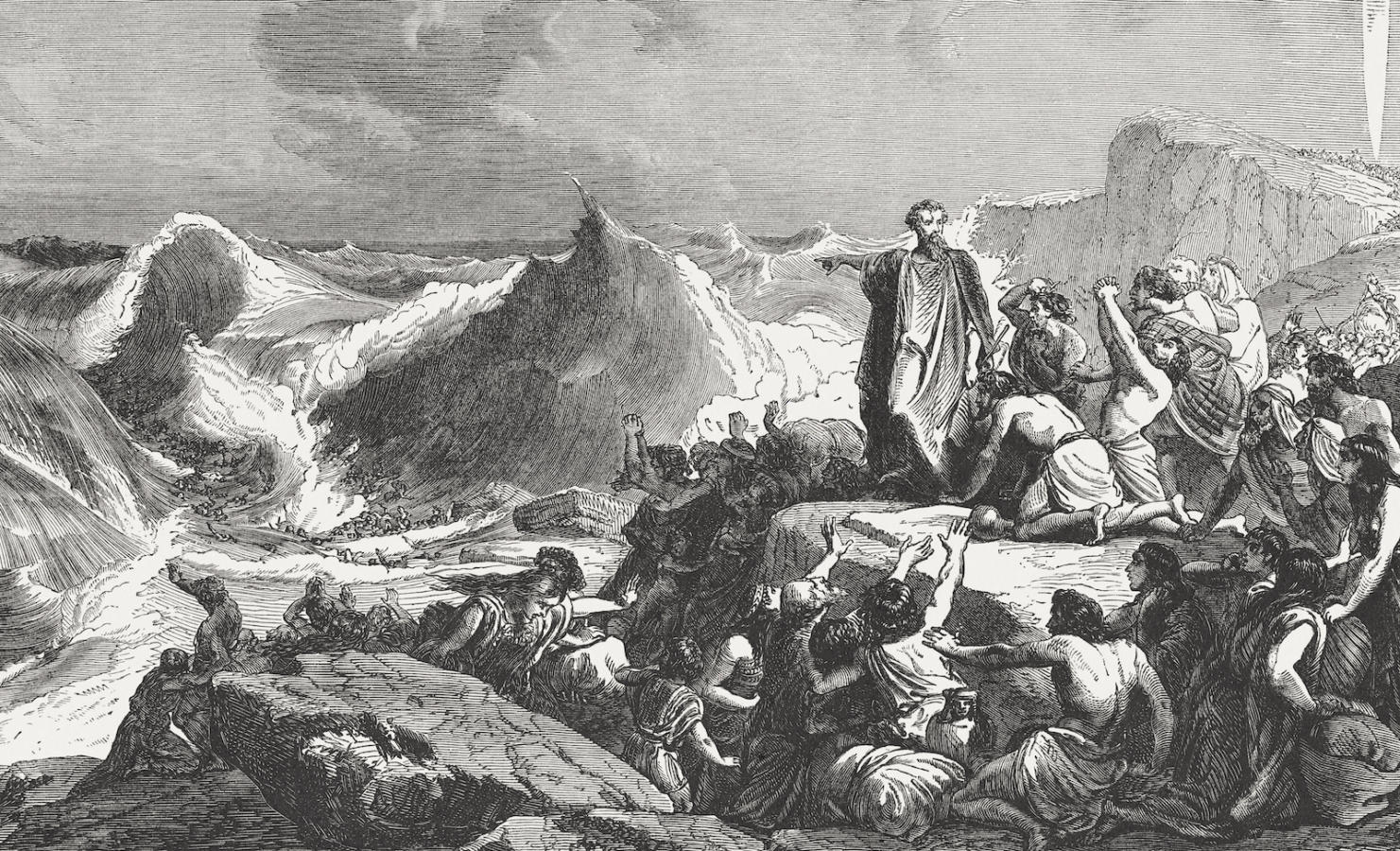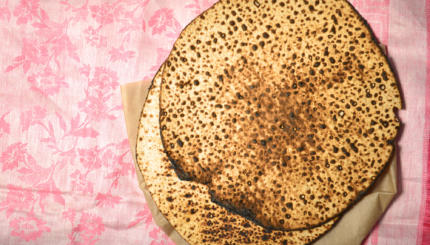How do we think about major events in our past? Do they remain core features of who we are or do they ultimately fade with time? Do traumatic – or miraculous – moments in our lives define us forever? Or are they best forgotten in order to move forward and grow?
These core questions of self and identity are surprisingly front and center in the Haggadah, but it takes a little work to uncover them.
In the early part of the Haggadah, we encounter a strange debate between the sages and a rabbi named Ben Zoma. In typical rabbinic fashion, they argue about the meaning of a seemingly extraneous word in the Torah. As is also typical of rabbinic debates, the implications of the argument extend well beyond an esoteric point of grammar.
The rabbis are discussing the end of this verse:
With your help, My Jewish Learning can provide endless opportunities for learning, connection and discovery.
“You shall not eat anything leavened with it; for seven days thereafter you shall eat unleavened bread, bread of distress—for you departed from the land of Egypt hurriedly—so that you may remember the day of your departure from the land of Egypt all the days of your life.” (Deuteronomy 16:3)
The extra word in the verse is “all.” The verse simply could have concluded “the days of your life.” What is the meaning of specifying “all the days”?
Ben Zoma states that this comes to teach us that we must remember the Exodus during both the day and the night, not just the day. But the majority of the sages disagree. They claim the word “all” comes to teach us that we must remember the Exodus not just in this world but also in the world to come.
So far, so good. We seem to have a technical debate about whether the extra word does or doesn’t indicate a requirement to remember the Exodus at night. But the Haggadah only quotes the first part of the debate. The rest – preserved in an ancient Jewish legal text – makes clear that there are bigger issues at stake.
Ben Zoma’s argument claims, in effect, that in the future we won’t need to remember the Exodus from Egypt at all. He cites the prophet Jeremiah, who stated that in the future God will no longer be known as the God “who brought the Israelites out of the land of Egypt” but rather as the God who “led the offspring of the House of Israel from the northland.”(Jeremiah 23:7-8).
In other words, Ben Zoma is claiming that the Exodus from Egypt, although certainly important to remember nowadays, is not an eternal part of the Jewish story. In fact, one day in the future, God will redeem the Jewish people from exile again by returning them from the land of North. The Egyptian redemption will no longer be critical to the story of the Jewish people. And therefore, there will be no need to mention it in the world to come – that is, eternally.
Ben Zoma offers a radical approach to memory. We only need to remember the most recent redemption, he claims. Old redemptions, like that of Egypt, are only important until the next redemption. Traumatic, even miraculous, events don’t last forever in our consciousness.
But the sages counter with their own explanation of the verse from Jeremiah. Yes, in the future the redemption from the North will be central, and the redemption from Egypt will be secondary. But the redemption from Egypt will never disappear from our memories. We will eternally tell this story, even if it is not the most relevant story in our history any more.
This is a fundamental debate about how we relate to the past. Are the Jewish people forever meant to remember – and be defined by – the Exodus from Egypt? Or are later redemptions meant to fully supersede this memory? What do we gain and lose by constantly returning back to this story, and telling it every year at Passover?
The debate has deep implications for identity and the possibility of change. For some, change is only possible when one becomes another and forgets the past. Maimonides, for example, suggests this is the power of changing one’s name as a form of teshuva, or repentance. “That is to say, I am another, and I am not the same person who did those deeds.” (Mishneh Torah Laws of Repentance 2:4).
Maimonides suggests that one way to change is to forget the past entirely, and reinvent oneself. This represents Ben Zoma’s vision of memory.
But there is another, more gradual model of personal change, which maps on to the sages’ position. The book of Chronicles, the final book of the bible, opens with a genealogy, which it interrupts briefly to say: “Abram, that is Abraham” (I Chron 1:27). The rabbis read this verse to mean that Abraham retained his righteousness from the beginning to the end of his life (Megillah 11a). In other words, even with all the journeying Abraham does, there is a core part of him that never changes. Indeed his name Abram grows to Abraham, but all the letters of his original name remain. He develops, but never loses his core.
While I find a certain appeal to Ben Zoma’s approach, I nevertheless am drawn to the majority position. We can never forget our original enslavement and exile as a people, even as later events in Jewish history come and go. The power of the seder is the power of memory in action, telling a story that still is a major part of our identity, even as it shifts in importance.
Rabbi Elie Kaunfer is president and CEO of the Hadar Institute.



